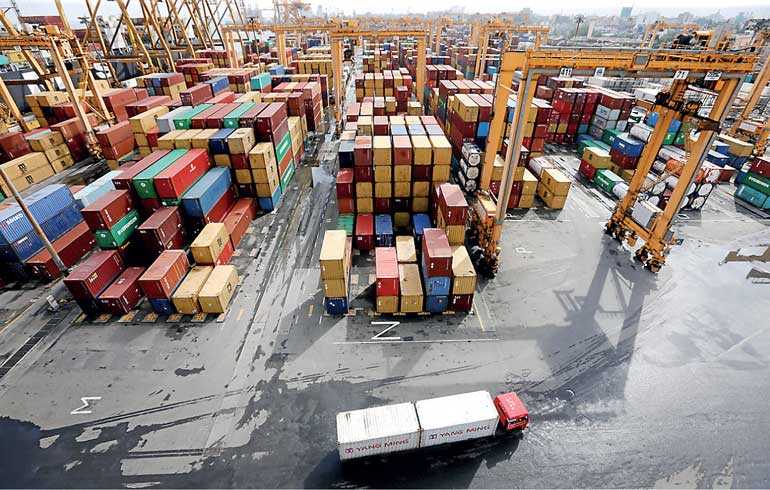Sunday Feb 15, 2026
Sunday Feb 15, 2026
Monday, 23 September 2019 01:35 - - {{hitsCtrl.values.hits}}

By Ashwin Hemmathagama – Our Lobby Correspondent
The Merchant Shipping (Amendment) Bill was passed last week by Parliament with amendments giving more power and responsibility to the Merchant Shipping Secretariat in order to enforce relevant legislations and the promulgation of necessary rules to give effect to the mandatory International Maritime Organisation (IMO) conventions and to lodge mandatory conventions into domestic legislations.
The Merchant Shipping Secretariat having identified the need of amending the outdated Merchant Shipping Act No. 52 of 1971 with the development and the transformation of the industry in the world while fulfilling the international obligations effectively and efficiently as a flag, a port and a coastal state has paved the way since 2015 to move amendments in par with IMO conventions.
Minister of Ports and Shipping and Southern Development Sagala Rathnayaka moving the Bill in Parliament held the IMO is the specialised agency of the United Nations in relation to global shipping activities and conducts mandatory audits on member states in terms of IMO resolution A1070 (2018), which is commonly known as Code 3 to ascertain the implementation of mandatory conventions of the IMO revealed lacuna in Sri Lankan maritime sector.
“As desired by the Merchant Shipping Secretariat, the IMO organised and conducted a mock audit in 2014 in order to ascertain the compliance with the mandatory instruments prior to the scheduled mandatory member state audit in 2016. During the mock audit it was revealed that Sri Lanka has not fully transposed several mandatory IMO instruments into domestic legislation in order to give those instruments full and complete effect,” he said.
“Accordingly, then Minister of Shipping submitted a Cabinet Memorandum Merchant Shipping Act No. 52 of 1971 in order to bring in the amendments in line with the IMO mandatory conventions. During the Cabinet meeting held on 29 April 2015, it was decided to grant approval to amend this Act thereby paving the way for necessary amendments to accommodate the IMO mandatory conventions into domestic legislation,” added Minister Rathnayaka.
Describing the role of the Merchant Shipping Secretariat operating under the Ministry of Ports and Shipping and Southern Development, and entrusted with the responsibility to make laws, regulate marine and merchant shipping activities of Sri Lanka, the Minister said: “It is the local contact point in Sri Lanka for International Maritime Organisation of the United Nations. The activities of the Merchant Shipping Secretariat are basically governed by the Merchant Shipping Act No. 52 of 1971, Licensing of Shipping Agents Act No. 10 of 1972. Merchant Shipping Secretariat deals with ensuring safety of life and property at sea, maritime education, training, examination and certification, registration of ships under Sri Lanka flag, licensing of shipping agents, container depot operators, container terminal operators, container freight stations, freight forwarders or a non vessel operating common carriers and implementing provisions of all applicable international maritime conventions and national regulations.”
“Annually we collect $ 100 million income by issuing Continuous Discharge Certificate (CDC) to seafarers and revalidation. It approves and audits maritime training courses, conducting examinations and certification of seafarers (CoC) and also regulates the maritime training establishments. It consucts registration of ships under the Sri Lanka flag and survey of ships for the issue of necessary statutory certificates and also conducts inquiries based on complaints received from seafarers working on foreign vessels that reach Sri Lanka.
The Secretariat also ensures the safety of navigation around the island by removing obstructions and mapping. It is responsible for removal of shipwrecks around Sri Lanka and also to take unseaworthy vessels into custody. The Secretariat disseminates the functions of the Marshal of the Admiralty Court under Admiralty Jurisdiction Act No. 40 of 1983 including the arrest and auctioning of ships,” he explained.